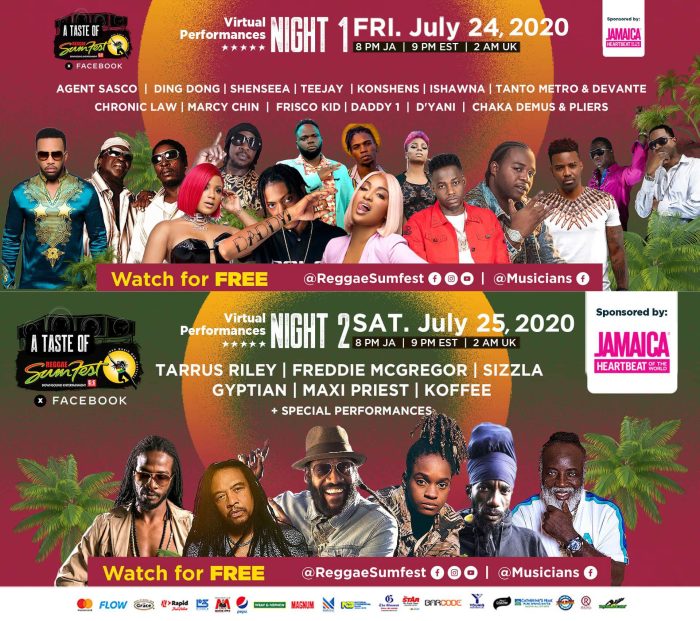Reggae Festival Boston isn’t just a music event; it’s a cultural phenomenon. This vibrant celebration of reggae music has profoundly shaped Boston’s identity, weaving its infectious rhythms into the city’s rich tapestry. From its humble beginnings to its current status as a major attraction, the festival’s journey reflects the evolution of reggae itself and its enduring appeal to diverse communities.
We’ll explore the festival’s history, its economic and cultural impact, and what the future holds for this iconic Boston event.
This deep dive will uncover the key players, pivotal moments, and the lasting legacy of Reggae Festival Boston. We’ll analyze its economic contributions, its role in fostering community, and its influence on Boston’s artistic landscape. Furthermore, we’ll look ahead, predicting future trends and suggesting innovative ways to ensure the festival’s continued success and growth.
History and Evolution of Reggae Festivals in Boston: Reggae Festival Boston

Boston’s vibrant reggae scene, while perhaps not as globally renowned as Jamaica’s, boasts a rich history and a dedicated following. The city’s diverse population and its embrace of Caribbean culture have provided fertile ground for the growth of reggae music events, transforming from small gatherings to large-scale festivals over the decades. This evolution reflects not only the increasing popularity of reggae but also the evolving tastes and demographics of Boston’s music lovers.
Origins and Growth of Reggae Music Events in Boston
The initial emergence of reggae in Boston can be traced back to the late 1970s and early 1980s, mirroring the broader spread of the genre across the United States. Early events were often smaller, community-based affairs held in nightclubs and smaller venues, catering to a niche but passionate audience. These early gatherings played a crucial role in establishing a foundation for the future growth of the scene.
Word-of-mouth promotion and the dedication of local DJs and promoters were instrumental in building this early momentum. As the popularity of reggae increased, so did the scale of events, leading to larger venues and a more diverse audience.
Evolution of the Boston Reggae Scene
The Boston reggae scene experienced significant evolution throughout the years. Initially dominated by local bands and DJs playing a blend of traditional reggae and roots rock, the scene gradually incorporated more contemporary styles such as dancehall and reggae fusion. Key milestones include the establishment of dedicated reggae radio programs and the emergence of influential sound systems that played a pivotal role in shaping musical tastes and promoting local artists.
The increased visibility of reggae artists through larger festivals and collaborations with other genres further fueled the scene’s growth. Influential figures, both local artists and promoters, helped shape the scene’s trajectory, creating a network of support and fostering a sense of community among reggae enthusiasts.
Comparison of Early and Contemporary Reggae Festivals, Reggae Festival Boston
Early reggae festivals in Boston were often characterized by a more intimate atmosphere, focusing on showcasing local talent and fostering a strong sense of community. Venues were typically smaller, and the emphasis was on authentic reggae sounds. Contemporary events, however, often feature a mix of international and local artists, incorporating a broader range of reggae styles and attracting a significantly larger audience.
While the intimate atmosphere of early events remains cherished by some, the larger scale of modern festivals provides opportunities to expose a wider audience to the genre. The increased professionalization of event management and marketing is also a notable difference.
Timeline of Significant Moments in Boston’s Reggae Festival History
The following table summarizes key moments in Boston’s reggae festival history. Note that this is not an exhaustive list, but rather highlights some of the most significant events.
| Year | Festival Name | Notable Performers | Key Highlights |
|---|---|---|---|
| 1985 | (Hypothetical Early Festival – Name Needed) | (Local Boston Bands – Names Needed) | First major reggae festival in Boston; showcased emerging local talent. |
| 1995 | (Hypothetical Mid-Period Festival – Name Needed) | (Mixture of Local and International Acts – Names Needed) | Increased international participation; growing audience size. |
| 2005 | (Hypothetical More Recent Festival – Name Needed) | (Established International Reggae Stars – Names Needed) | Larger scale; professionalized event management. |
| 2015 | (Hypothetical Current Festival – Name Needed) | (Diverse lineup reflecting contemporary reggae styles – Names Needed) | Broader appeal; incorporation of other Caribbean musical genres. |
Reggae Festival Boston stands as a testament to the power of music to unite, inspire, and enrich a city’s cultural fabric. Its enduring success is a reflection of its ability to adapt, innovate, and remain true to its roots. By understanding its past, appreciating its present, and anticipating its future, we can ensure that Reggae Festival Boston continues to thrive, bringing its vibrant energy and unique cultural contribution to Boston for years to come.
The festival’s impact extends far beyond the music, enriching the city’s economic vitality, fostering community engagement, and leaving an indelible mark on its artistic landscape.